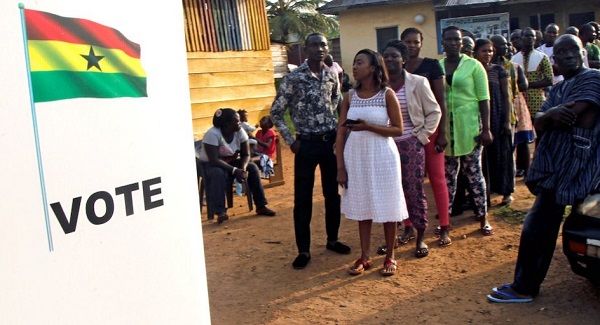
Are Africans getting the democracy they want?
African citizens want democracy. In my op-ed piece last week on initial signals from Round 10 of the Afrobarometer survey, I noted that preference for democracy remains strong among African citizens with seven out of 10 (69 per cent) saying “democracy is preferable to any other form of government.
” This initial signal is based on the 14 countries (Angola, Cameroun, Cote d’Ivoire, Gabon, The Gambia, Guinea, Kenya, Lesotho, Mauritius, Morocco, Namibia, Tunisia, Uganda and Zimbabwe) whose data is currently available online. The point must be made that while the aggregate picture shows strong support, there are country variations with preference for democracy ranging between 51 per cent and 86 per cent.
The natural question to ask, given the overall strong preference for democracy, is this – are Africans getting the democracy they want? To answer this question, I turn once again to the initial signals from the Afrobarometer survey (Round 10, 14 countries).
Initial signals – Democracy deficits
Democracy deficit calculates the difference between how much respondents want democracy (those who say democracy is preferable to any other form of government) and how much democracy they say they are getting (those who say they are satisfied with the way democracy is working).
A positive number means that citizens are getting more democracy (satisfaction) than they demand (support) i.e., satisfaction is greater than preference, thereby creating a democracy surplus. A negative number means that citizens are getting less democracy (satisfaction) than they demand (support) i.e., support for democracy is greater than satisfaction, thereby creating a democracy deficit.
Across the 14 countries, only one (Tunisia) is experiencing a surplus where its citizens report satisfaction with democracy by eight percentage points higher than support for democracy.
All the remaining countries are experiencing democracy deficits, some much higher than others – a) Angola (-34 per cent); b) Cameroun (-25 per cent); c) Côte d´Ivoire (-30 per cent); d) Gabon (-32 per cent); e) Gambia (-28 per cent); f) Guinea (-46 per cent); g) Kenya (-25 per cent); h) Lesotho (-30 per cent); i) Mauritius (-32 per cent); j) Morrocco (-11 per cent); k) Namibia (-5 per cent); l) Uganda (-21 per cent); m) Zimbabwe (-40 per cent).
The aggregate picture (all 14 countries) shows that citizens are experiencing a democracy deficit where satisfaction lags support by as much as 25 percentage points (-25 per cent). Essentially, African citizens are not getting democracy as much as they want democracy.
Initial signals – Other democracy supply challenges
Rights and freedoms are at the heart of democracies with constitutions guaranteeing these for citizens. Three freedoms are asked about in the Afrobarometer survey – a) freedom to say what you think; b) freedom to choose who to vote for; and c) freedom to join and political organisation.
Focusing on the freedom to say what you think, only four out of 10 (41 per cent) overall say they are “completely free to say what they think.” The percentage of citizens saying “completely free” ranges between 21 per cent and 65 per cent. Half of the 14 countries under examination (Angola, Cameroun, Côte d´Ivoire, Gabon, Mauritius, Morocco, and Zimbabwe) have less than 40 per cent of citizens in their respective countries saying they are “completely free to say what they think.”
Democracies often tout the rule of law as one of their major strengths. The long-held cherished principle is that, in democracies, the law treats every citizen the same way without fear or favour. Yet, when asked how often officials who commit crimes go unpunished, as many as six out of 10 (62 per cent) answered “often/always.” However, when the same is asked about ordinary citizens, only three out of 10 (34 per cent) answered “often/always.” To further complicate this perception, when asked how often people are treated unequally under the law, as many as six out of 10 (62 per cent) answered “often/always.” Such perceptions are not healthy as they undermine trust and confidence in especially law enforcement institutions.
The principle of representation in a democracy advances the idea that elected leaders strive to reflect the will and interest of the people in decision-making. A member of the legislature ostensibly is elected to be the representative of a group (geographic area) to give voice to the hopes and aspirations of those he or she represents. But when asked “How much of the time do you think the following try their best to listen to what ordinary people have to say? Members of [Parliament]” only two out of 10 (17 per cent) say “often/always.” Across the 14 countries, no more than 22 per cent in any given one described their Members of Parliament as persons who listen “often/always.”
Where do we go from here?
Surely the initial signals show that democracy is falling short along certain dimensions. There are concerns about democratic backsliding in the region. The trend can be reserved. However, it will require a conscious effort to identify the backsliding signals so that democracy activists and policy actors can respond positively to them with corrective action.
The writer is the Project Director, Democracy Project
